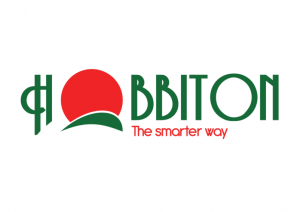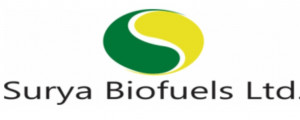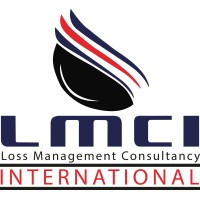Terms of Reference for the Mid-Term Evaluation of the Transparency International Zambia (TI-Z) Strategic Plan 2023-2027 in Zambia
1. General information
1.1 Introduction
Transparency International Zambia (TI-Z) is a local chapter of the global civil society movement Transparency International, which is dedicated to the fight against corruption and the promotion of transparency, integrity, accountability and generally good governance in the discharge of public functions. TI-Z is a non-profit making non-governmental organization with a registered office in Lusaka and has been in existence since June 2000.
The Embassy of Sweden has provided core support towards the implementation of the TI-Z’s strategic plan for the period 2023 – 27, whose activity period runs from 5th May 2024 to 31st December 2027, while the agreement period is from 4th July 2024 to 30th June 2028. The core funding agreement provides for both the mid-term and end term evaluations. The mid-term evaluation is scheduled to end by 31st March 2026 and is to be commissioned by TI-Z while the end term evaluation will be commissioned by the Swedish Embassy and will be scheduled to end by 31st October 2027. These terms of reference relate to the mid-term evaluation.
1.2 Evaluation object: Intervention to be evaluated
The evaluation object is the TI-Z Strategic Plan for the period 2023 to 2027. The 2023- 2027 Strategic Plan is anchored on five strategic goals, which reflect the thematic areas of focus identified as relevant in addressing the current and future concerns of corruption in Zambia. These thematic areas are aligned with the long-term change as well as intermediate and short-term outcomes outlined in the Theory of Change.
TI-Z uses a two pronged yet integrated approach to realize its strategic objectives. The approach focuses on the macro level (legal, policy, institutional) and micro level (local, citizens). Activity implementation is being done through the Active Citizenship and Community Action (ACCA), Governance and Institutional Strengthening (GIS), Public Finance Management (PFM), Climate Change and Environmental Sustainability (CCES) and High Performing Organisation strategic focus areas. These focus areas aim at delivering the strategic goal through achievement of the following strategic objectives:
i. SO1: Enhanced Citizens’ voices, demanding accountability and taking action against corruption
ii. SO2: Enhanced and sustained integrity and ethical culture in the community, public life and business environment
iii. SO3: Enhanced protection and accountability of public financial resources
iv. SO4: Strengthened transparency and accountability in climate financing, land and environmental governance
v. SO5: Well-resourced and high-performance organisation
Funding
The Embassy provides the bulk of TI-Z’s funding. In 2025, the Sida contribution stood at 68% of TI-Z’s annual budget. Other donors include Transparency International Secretariat (TIS), GIZ, the Norwegian Church Aid and Dan Church Aid, International Organization of Supreme Audit Institutions and TI-Canada.
TI-Z works with established either Transparency Action Groups (TAGs) or District Working Groups (DWGs). These are multi stakeholders’ coalitions drawn from CSOs, CBOs, public, private sectors, tradition leadership and FBOs in target districts. The coalitions implement TI-Z activities at district level. For purposes of the MTE, the Consultant is at liberty to suggest what sample of TAGs and DWGs would be reasonable given the time and available resources.
In Lusaka, the engagement is mainly with key public institutions which include; National Assembly, the Judiciary, Zambia Police Service, Road Transport and Safety Agency, Anti-Corruption Commission, Office of the Public protector, Ministry of Community Development and Social Services, Ministry of Agriculture, Ministry of Finance and National Planning, Ministry of Local Government and Rural Development, Ministry of Mines (ZEITI), Ministry of Green Economy and Environment, Ministry of Justice, Office of the Auditor General, Electoral Commission of Zambia and the Zambia Law Development Commission.
1.3 Evaluation rationale
The mid-term evaluation is scheduled to commence in 2025, which marks the halfway point of the current Sida support provided to TI-Z and the third year for strategic plan implementation. This timing provides an opportunity to assess progress towards the intended outcomes, identify challenges and lessons learned and make any necessary adjustments to enhance effectiveness during the remaining implementation period. It will provide accountability to the Embassy and other stakeholders by assessing how the support has contributed to TI-Z’s strategic objectives. Additionally, it will inform decision-making regarding the partnership between TI-Z and the Swedish Embassy.
2. The assignment
2.1 Evaluation purpose: Intended use and intended users
The purpose of the Mid-Term Evaluation (MTE) is to assess the following;
a. Whether the theory of change (ToC), assumptions and risks still hold
b. Review the learning from implementation thus far
c. Assess progress towards achievement of results
d. Review the monitoring, evaluation, learning and reporting function of TI-Z
e. Based on the learning from b and d, clarify on what needs to be done to enhance achievement of results.
The primary intended users of the evaluation are TI-Z andSida’s unit for Bilateral Development Cooperation at the Swedish Embassy in Zambia. For TI-Z, the evaluation will be used by the TI-Z management to inform decisions on how implementation of the strategic plan may be adjusted and improved.
For the Embassy, the mid-term evaluation will help assess the extent to which the implementation of the TI-Z strategic plan is contributing to the achievement of its sub-result on Improved conditions for democratic governance, reduced corruption, increased responsibility and accountability in public institutions. The evaluation will also identify best practice and possible areas for the Embassy to provide further technical support or otherwise.
The mid-term evaluation is to be designed, conducted and reported to meet the needs of the intended users and tenderers shall elaborate in the tender how this will be ensured during the evaluation process.
2.2 Evaluation scope
a. The Mid-Term Evaluation will review the performance of the TI-Z 2023-2027 Strategic Plan since its inception (baseline) to date. Specifically, it will review progress towards achieving the Plan’s strategic objectives.
b. In terms of the geographical scope, it is proposed that the MTE includes provinces with activity in more than one district and/or where major projects are implemented. Further, the MTE should strive to have a balance between urban, peri-urban and rural districts. The actual locations will be agreed during the startup of the MTE.
c. The scope of the evaluation may be further elaborated by the evaluator in the inception report.
3. Evaluation objective: Criteria and questions
The objective of this evaluation is to evaluate whether or not the ToC, assumptions and risks still hold, draw, draw lessons from implementation thus far, evaluate towards achievement of results, evaluate the TI-Z MELR function of TI-Z and formulate recommendations for enhanced implementation and achievement of results. The evaluation questions are:
Relevance: Is the intervention doing the right thing?
i. To what extent do the ToC, assumptions and risks still hold?
ii. To what extent have the TI-Z strategic plan objectives and design responded to beneficiaries, country, and partner/institution needs, policies, and priorities, and have they continued to do so if/when circumstances have changed?
iii. To what extent are the MELR tools facilitating TI-Z’s effectiveness in implementation, identification and documenting of results as well as reporting of results?
Efficiency: Is the intervention using resources in a cost-effective and timely manner?
i. Were resources (financial, human, technical) used efficiently, in a timely and strategic manner?
ii. Was the environmental impact justified by the strategy’s outcomes?
iii. To what extent have resource allocations been optimised to deliver the highest value for money without compromising quality or outcomes?
iv. What approaches, mechanisms and innovations have proven especially important to contribute or hinder strategy outcomes, e.g. partnerships with civil society or the academia, multi-stakeholder dialogue, ALACs, digital tools, GESI good practices etc?
Effectiveness: Is the intervention achieving its objectives?
i. To what extent is the TI-Z strategic plan expected to achieve, its objectives, and its results, including any differential results across groups? Where were the most significant outcomes observed?
ii. To what extent has the strategic plan adapted its strategies and allocate resources based on ongoing assessments of areas with the highest potential for impact?
iii. What internal or external factors most strongly influenced the achievement of intended outcomes (e.g. political context, capacity)?
iv. What main barriers have been identified as well as strategies to mitigate their impact?
v. Did any innovations prove useful to address the contextual and emerging needs?
vi. Have the M&E system delivered robust and useful information that could be used to assess progress towards outcomes and contribute to learning?
Sustainability: Will the benefits last?
i. To what extent are the benefits and results of the intervention likely to continue?
ii. To what extent is the intervention contributing to changing attitudes and practices in respect to good governance and anti-corruption?
iii. To what extent has TI-Z been able to mobilise additional resources, apart from Sida support, for its interventions?
iv. What are the main sustainability risks, and what mitigation actions could be implemented by TI-Z?
Further, bidders should consider including evaluation questions that address the perspective of the poor, the gender and a human rights-based. This could include one or two questions such as:
i. Has the strategic plan been implemented in accordance with the poor people’s perspective and a Human Rights Based Approach? For example, have target groups been participating in project planning, implementation and follow up?
ii. Have the priorities of people living in poverty, as expressed by themselves, been reflected in the planning and implementation?
iii. Has anyone been discriminated against in the course of implementation?
iv. Has gender equality and social inclusion been integrated in the strategic plan implementation?
Questions are expected to be developed in the tender by the tenderer and further refined during the inception phase of the evaluation.
3.1 Evaluation approach and methods
It is expected that the evaluator describes and justifies an appropriate evaluation approach/methodology and methods for data collection in the tender. The evaluation design, methodology and methods for data collection and analysis are expected to be fully developed and presented in the inception report.
The evaluator is to suggest an approach/methodology that provides credible answers (evidence) to the evaluation questions. Limitations to the chosen approach/methodology and methods shall be made explicit by the evaluator and the consequences of these limitations discussed in the tender. The evaluator shall to the extent possible, present mitigation measures to address them. A clear distinction is to be made between evaluation approach/methodology and methods.
A gender-responsive approach/methodology, methods, tools and data analysis techniques should be used. It is expected that the evaluators, in their tender present:
i. How intended users are to participate in and contribute to the evaluation process and
ii. Methodology and methods for data collection that create space for reflection, discussion and learning between the intended users of the evaluation.
In cases where sensitive or confidential issues are to be addressed in the evaluation, evaluators should ensure an evaluation design that does not put informants and stakeholders at risk during the data collection phase or the dissemination phase.
3.2 Organisation of evaluation management
This evaluation is commissioned by TI-Z in Lusaka.The intended users are TI-Z and Sida. TI-Z will establish a reference group, which will contribute to and in consultation with Sida agree on the ToR for this evaluation. The reference group is a decision-making body. It will approve the inception report and the final report of the evaluation. The reference group will participate in the start-up meeting of the evaluation, as well as in the validation meeting where preliminary findings, lessons, recommendations and conclusions will be discussed.
The consultant will be contracted and administratively managed by TI-Z, in close coordination with the Sida. Day-to-day management will be the responsibility of TI-Z’s designated Evaluation Focal Point, who will serve as the main contact person for all contractual, logistical and technical communications. TI-Z will facilitate:
i. Access to relevant documentation and background information.
ii. Contact with stakeholders to be interviewed.
The evaluator, with support from TI-Z will be required to arrange the logistics such as booking interviews, preparing visits etcincluding any necessary security arrangements.
3.3 Time schedule and deliverables
It is expected that a time and work plan is presented in the tender and further details in the inception report. The evaluation shall be carried out from 10th November 2025 to 27th February 2026. The timing of any field visits, surveys and interviews need to be settled by the evaluator in dialogue with the main stakeholders during the inception phase.
The table below lists key deliverables for the evaluation process. Alternative deadlines for deliverables may be suggested by the consultant and negotiated during the inception phase.
Deliverables:
- Start-up meeting
- Draft inception report
- Comments from intended users to evaluators
- Inception meeting
- Final inception report
- Field collection of Primary Data
- Draft evaluation report
- Internal validation meeting
- Final evaluation report
Participants
- TI-Z and Evaluators
- Evaluators
- TI-Z
- TI-Z and Evaluators
- Evaluators
- Evaluators
- Evaluators
- TI-Z and Evaluators
- Evaluators
Deadlines:
- Tentatively 10 November 2025
- Tentatively 14th November 2025
- Tentatively 18th November 2025
- Tentative 21st November 2025
- Tentative 25th November 2025
- Tentatively 26th November to 31st December 2025
- Tentatively 26th January 2026
- Tentatively 10th February 2026
- Tentatively 27th February 2026
The inception report will form the basis for the continued evaluation process and shall be approved by TI-Z before the evaluation proceeds to implementation. The final report shall be professionally proof read.
3.4 Evaluation team qualification
In addition to the qualifications already stated in the framework agreement for evaluation services, the evaluation team shall include the following competencies:
a) Qualification and skills:
Master's degree in Social Sciences.
b) General professional experience:
A minimum of 10 years relevant professional experience in development programmes in developing countries (minimum 3 years in Africa), notably in monitoring and evaluating donor funded programmes in developing countries, and with the following expertise:
i. Demonstrated experience in working on programmes in the area of anti-corruption and good governance
ii. Experience in conducting evaluations;
iii. Certificate of registration as a Company or Consultant
iv. Strong understanding of Zambian civil society dynamics
v. Strong understanding of the governance and anti-corruption sector in Zambia will be an advantage;
vi. Strong interpersonal skills, diplomacy and tact to effectively communicate with all concerned stakeholders and professionals from diverse cultural and professional backgrounds; and
vii. Strong professional oral communication and writing skills, including the development of reports, oral presentations, and technical/persuasive documents.
viii. Excellent written and spoken English
3.5 Application Evaluation Criteria
Tenders will be evaluated based on how well the consultant has demonstrated understanding of the task, experience of previous and similar work, capacity and how the proposed approach aligns with the needs and tasks. Only shortlisted applications will be notified. Applicants may be asked to provide additional or clarifying information and details on the assistance requested.
The application will be evaluated according to the evaluation criteria set out below. To the extent necessary (if an award is not made based on initial applications), negotiations may be conducted with each applicant whose application, after discussion and negotiation, has a reasonable chance of being selected for an award.
Evaluation Criteria
Consultant Past Performance:
Record of well-established and successful delivery of similar services. Consultant has provided evidence of ability to perform similar work, supported by a list of references that can confirm the consultant’s technical qualifications. TI-Z will verify past performances by contacting references.
Score:35
Technical Approach:
Demonstrated evidence of technical knowledge. CV of lead consultant should demonstrate extensive knowledge and experience in Monitoring, Evaluation and Learning work.
Competency of Key staff for the Assignment:
The Consultant(s)/Consultancy Firm shall specify its team members, responsibilities, skills and relevant experience to deliver the service. Signed curriculum vitae (CVs) and qualification certificates of proposed staff must be submitted in detail).
Lead Consultant (Team Leader). A minimum of 10 years relevant professional experience in development programmes in developing countries (minimum 3 years in Africa), notably in monitoring and evaluating donor funded programmes in developing countries
Score: 40
Budget: Are costs reasonable, allowable and allocable
Score: 25
TOTAL SCORE: 100
i. Past Performance: Tender should not only list previous work/projects, but also indicate the role played by the consultant and results obtained on a similar work. The CV of the consultant should demonstrate at least five years of solid experience working on or leading similar work, and knowledge of designing and managing quantitative and qualitative data collection and analysis. Experience of doing similar work and experience in the related field and/or sector.
ii. The applicant is required to submit three references with email and telephone contact information related to past experiences of similar assignments. Please provide the following for each reference: contact information, dates of project(s) with each client, type of work performed in engagement, industry of the client, and any other relevant information that assists with feedback gathering.
iii. Technical Approach: The applicant is required to demonstrate similar work previously undertaken.
iv. Feasibility and Cost Effectiveness: The Consultant should provide the consultancy rate per period in Zambian Kwacha.
Using the above evaluation criteria, selection committee members will score and rank each application and recommend the best candidate.
3.6 Application and Submission Information:
Eligible and interested candidates will be required to submit their application no later than Thursday 28th October 2025. Applications can be emailed to info@tizambia.org.zm. The complete application packet must be submitted in the required format with the required attachments.
i. Tender with consultancy fees/rates (maximum 5 pages)
ii. Curriculum vitae with traceable referees (maximum 5 pages)
4.0 Notification of Selection
TI-Z will notify the offeror who submitted the highest scoring proposal in writing by email. Clarifications and revision of minor errors and omissions may be requested. Upon completion of either, the offeror may be required to submit a revised quote.
All prospective candidates are advised to follow the application procedure and guidelines provided.















